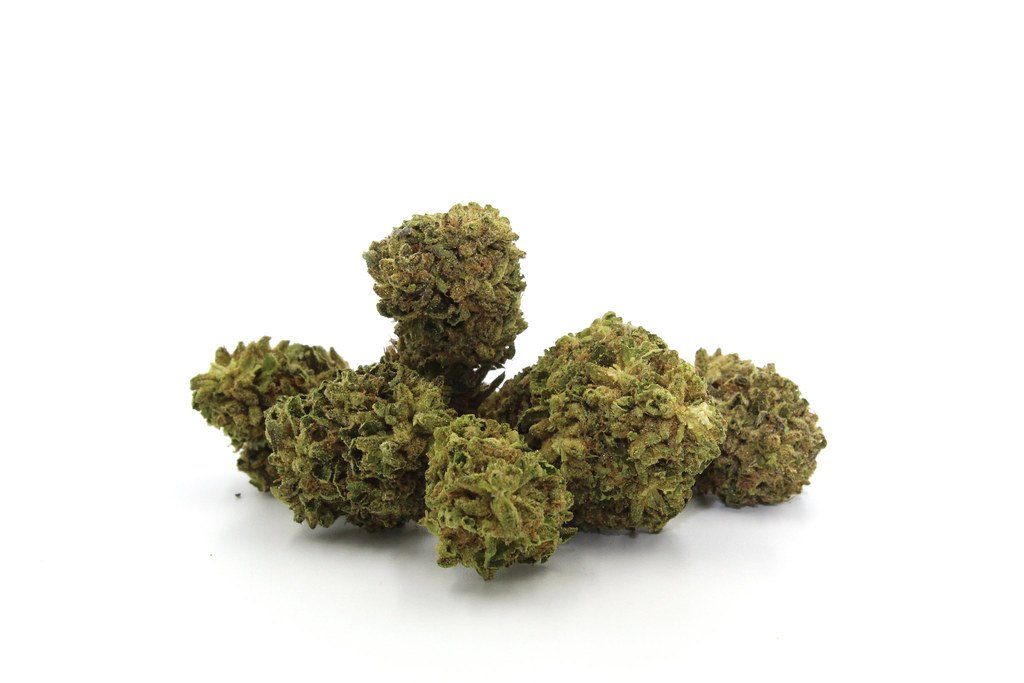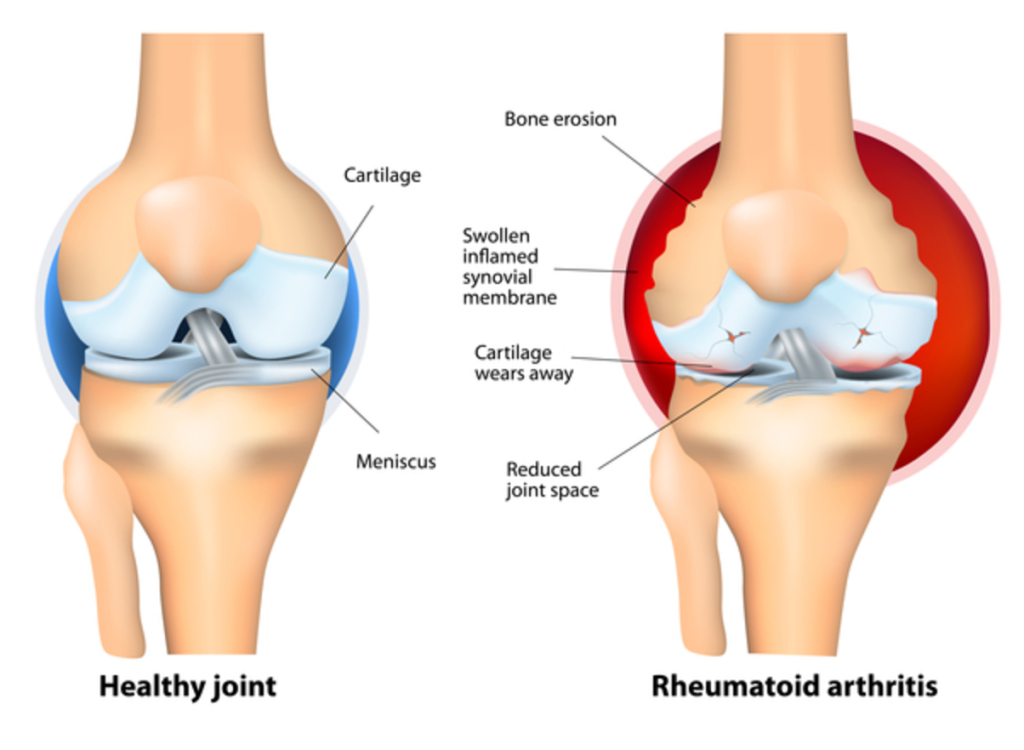EZ-Blog
Cannabis for Arthritis: What you should know
Taking cannabis for arthritis is recommended for anyone who suffers from chronic pain. If you have arthritis, have a family member, or know a friend who has it, this article can help you give a different view on another option on how to help manage arthritis.
What is arthritis?

Arthritis Society of Canada defines arthritis is a term used to umbrella over a hundred disease that is characterized by the chronic inflammation of the joints and other areas of the body. Inflammation describes the redness and swelling of the joints, which causes pain and stiffness in those affected. If this condition is left untreated, the inflammation can lead to serious and irreversible damage to the affected joints in the body which may result in losing its function and the disability.
In Canada, charting as the one of most common chronic disease, along with diabetes, heart disease, asthma, cancer, and stroke. Arthritis has 6 million people affected last 2019 according to the Arthritis Community Research and Evaluation Unit on their Status of Arthritis in Canada report.
Despite arthritis developing at any age, it is mostly found in ages below 65 years old. Arthritis is so prevalent in Canada that in every 5 people, there is 1 suffering from it. It also has been commonly found among women (1 in every 4) as compared to men (1 in every 6).
Arthritis has no cure but the condition can be managed with proper treatment to help and ease the pain that it brings.
Canada legalizing the possession and use of recreational marijuana in 2018 paved the way for patients to use cannabis’ medicinal properties for relief. The cannabis’ medical properties include: potently reduce inflammation or swelling (anti-inflammatory), regulate or normalize the immune system (immunomodulatory), and acts to relieve pain (analgesic).
As of 2019, there are 619,041 Canadians registered as medical marijuana clients and in year 2020 is expecting to have a population of 715,000.
Cannabis for arthritis – The connection

Wild in the tropical and temperate areas of the world, the plant genus Cannabis L. and its well-known species; Cannabis sativa and Cannabis indica are found. Cannabis is one of the widely consumed substances in the world along with alcohol, caffeine, and tobacco.
It has over 400 chemical entities and of which are over 60 are cannabinoids but Cannabis L. is known more for its major 2 cannabinoid compounds: the delta-9-tetrahydrocannabinol (THC) and the cannabidiol (CBD).
Delta-9-tetrahydrocannabinol is primarily produced in the leaves and buds of the female plant and is the main psychoactive ingredient giving consumers the fleeting experience.
Medical properties of THC include increasing appetite and reduce nausea, pain, inflammation, and muscle control problems. Up to date, there are 2 man-made pills called dronabinol (Marinol) and nabilone (Cesamet) that is Food and Drug Administration (FDA) approved and is administered to patients undergoing chemotherapy to prevent nausea and vomiting.
Cannabinol (CBD) is a type of cannabinoid and is not a psychoactive drug. It is thought to be responsible for the majority of the medical properties of Cannabis which are very useful in reducing pain and inflammation, controlling epileptic seizure and is currently being researched for mental illness and addictions. Epidiolex® is a CBD based liquid medication that health care providers prescribe to treat two forms of severe childhood epilepsy: the Dravet syndrome and Lennox-Gastaut syndrome.
Despite THC and CBD both having anti-inflammatory and alleviating pain properties, professionals prefer and widely accept the relationship of CBD for arthritis.
Also in accordance with the Canadian Rheumatology Association, medical cannabis should not treat arthritis or other rheumatic conditions of patients who are under the age of 25 years old.
Cannabis for Inflammation
Dr. Jason McDougal, a researcher of Dalhousie University, who was studying if cannabis on arthritis said that marijuana can just not reduce the pain but cannabis actually also works on the joints. Cannabis lowers inflammation in the joint but unfortunately, not with the stiffness.
Cannabis does this with its CBD combining with CB1 and CB2, the two most significant receptors in the human body that are involved with the control of the anti-inflammatory mechanisms of the body. Ths bond with CBD allows CB1 and CB2 to give positive feedback that in turn, also allows signals to be sent to the brain to lessen the inflammation of the joints.
Cannabis for Pain
Pain is the major symptom felt by patients diagnosed with arthritis. Cannabis’ medicinal properties can help in reducing the pain in patients, especially with the morning pain. CBD in cannabis helps arthritis by suppressing the bodily functions that cause the development of the condition.
Cannabis Intake
If you are concerned about which type or strain of cannabis you should be using, it has been suggested that Cannabis indica are the ones to be more helpful for patients.
Doctors also have recommended a variety of cannabis products to treat arthritis. This included dried cannabis, tincture, edibles, and topicals.
Dried cannabis can be done traditionally by smoking or be vaporized. This method though deprives the consumer of the health benefits of cannabis. Also, inhalation carries unknown risks.
CBD can also be taken by spraying or dropping CBD under the tongue. The effects may be fets within 15 to 45 minutes.
Cannabis edibles or cannabis-infused food and drinks have a delayed onset of its effects for the consumer.
Cannabis-based topicals are the most popular administration method. Like balms and lotions, these topicals are applied to the skin over the painful joint.
Risks of Consuming Cannabis
People can generally tolerate CBD amounts but in some individuals, they might experience mild side effects such as fatigue, diarrhea, weight loss, and changes in appetite.
This is why it is very important to talk and seek advice from your doctor or healthcare provider because, with their knowledge, they can help plan for a treatment that can decrease these adverse side-effects.
Conclusion
CBD’s effectiveness has been tested and proven by various professionals, institutions, and organizations making them a promising component for arthritis future treatment. If you are considering this option, seek advice from a doctor before starting to use it because despite the cannabis’ medical significance, there are still potential risks involved in using it. On the whole cannabis for arthritis is a good choice, try it and let us know your experience.


Fantastic article! A great and quick read to help you visualize a connection from the raw Cannbis Sativa/Indica plants to the consumable version. It is also nice to see exactly HOW the cannabinoids have a role in our brain with our receptors that correlate with reducing our pain/inflammation. Good introduction to those dipping their toes into the wonderful world of cannabis use for health & wellness. I am an athletic rehab therapist and I regularly prescribe cannabis, with and without psychoactive property.